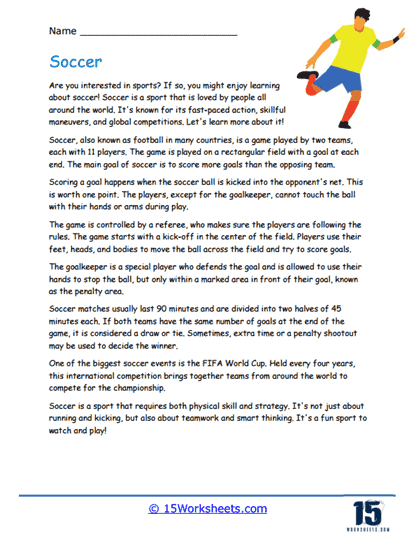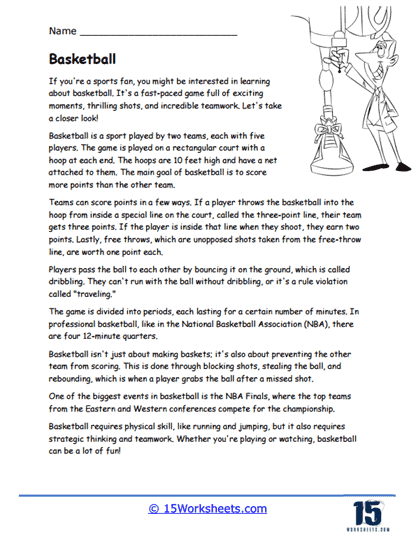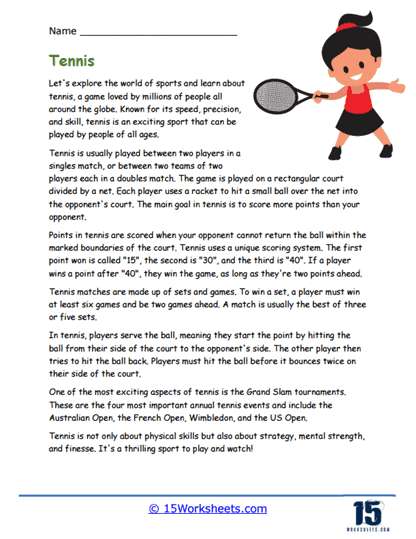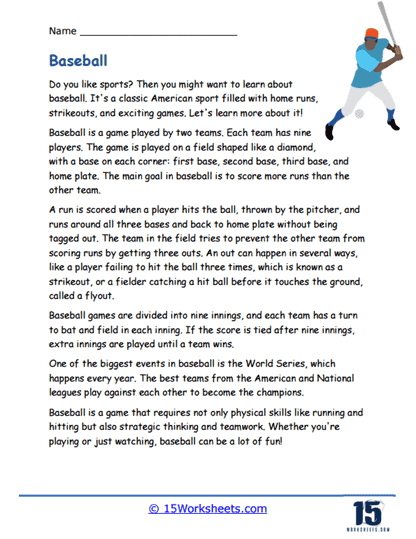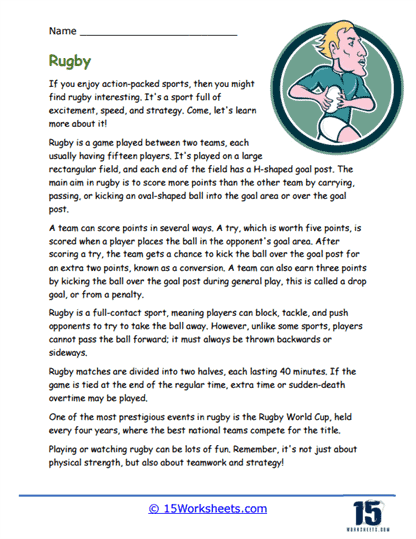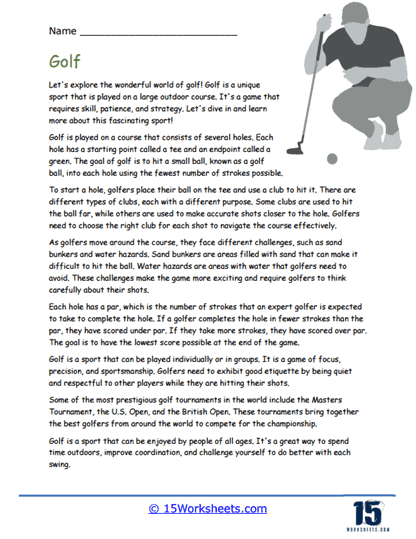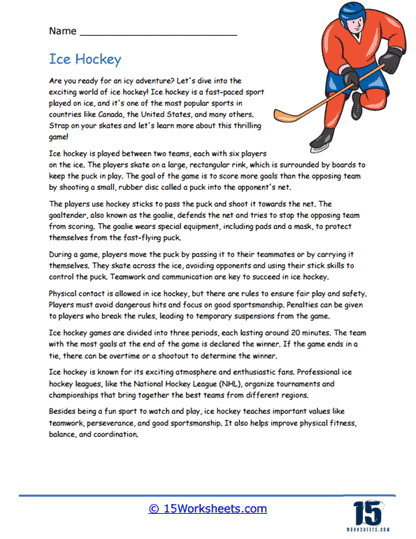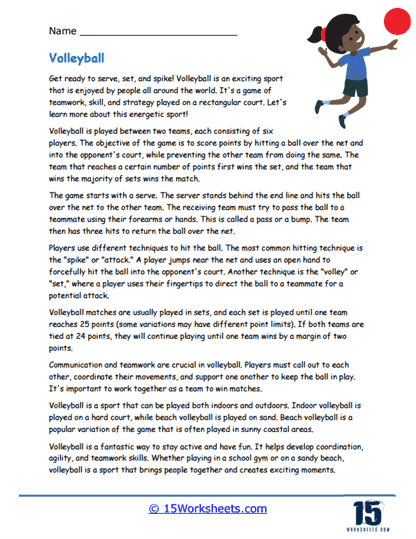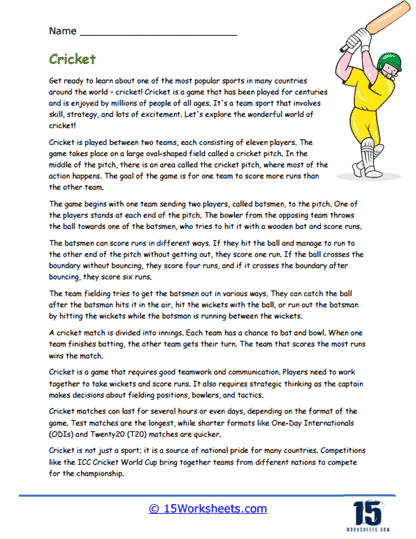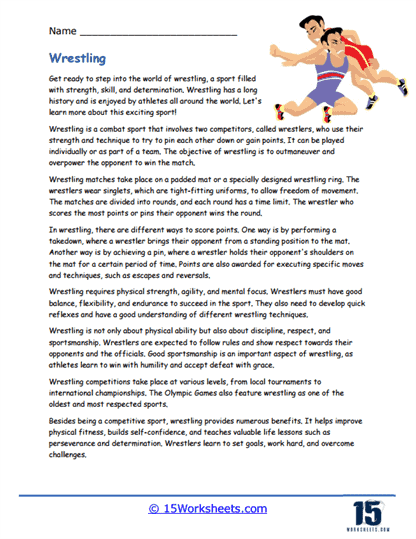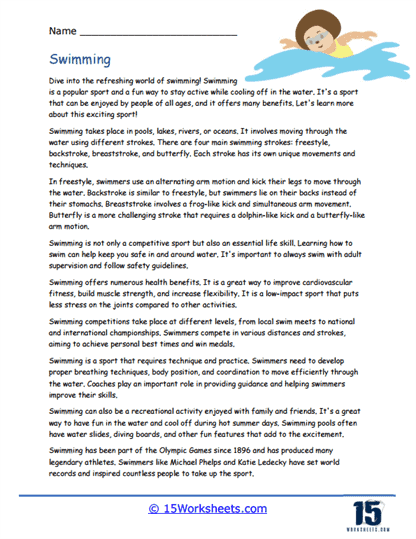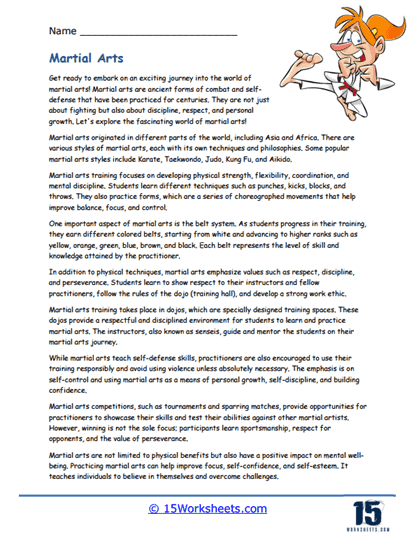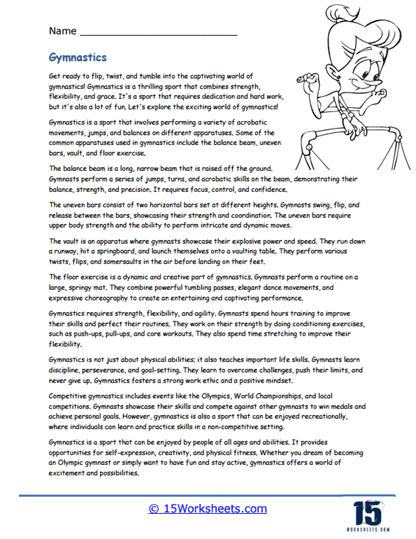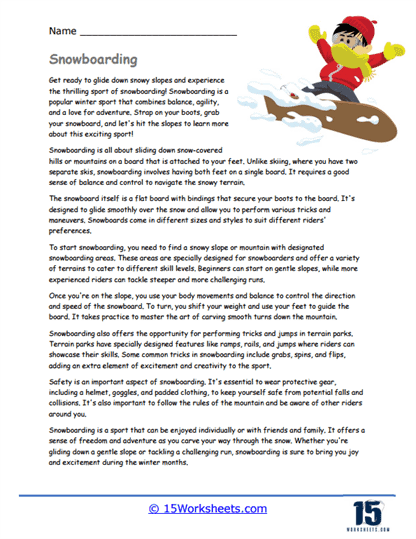Sports Worksheets
All About These Worksheets
These worksheets are super cool because they let you combine two awesome things: reading and sports! If you love reading and you’re a sports fan, it’s like a home run or scoring a goal!
These worksheets include passages that talk about various sports, such as athletes, teams, events, rules, history, and more. The main goal of these worksheets is to assess and enhance a student’s ability to understand, analyze, and interpret written information about sports.
Following the passage, a series of comprehension questions are presented. These questions require students to demonstrate their understanding of the content they just read. The questions might cover a range of skills, including identifying main ideas, understanding details, making inferences, drawing conclusions, and more.
In addition to factual questions, some worksheets may include critical thinking or opinion-based questions. These questions encourage students to think deeper about the content, make connections, and express their thoughts and opinions.
They also help to develop various reading skills, such as skimming and scanning for information, identifying key points, summarizing, and making connections between different parts of the text.
What Are Sports?
Sports are physical activities or games that involve individuals or teams competing against each other based on specific rules and objectives. These activities often require physical exertion, skill, strategy, and competition. Sports can be organized at both amateur and professional levels and are often played for entertainment, exercise, and the pursuit of personal or team goals.
Sports can take various forms and encompass a wide range of disciplines. Some popular examples include football (soccer), basketball, baseball, tennis, golf, swimming, athletics, cricket, rugby, and many others. Each sport typically has its own set of rules, equipment, and playing field or venue.
How Youth Sports Can Help You
Youth sports play a crucial role in the development of children and can provide valuable skills and experiences that prepare them for the real world. Participating in sports offers several benefits. It promotes physical fitness, as it requires movement, strength, and stamina.
Sports can also foster teamwork, communication, discipline, and leadership skills. Additionally, they can provide opportunities for personal growth, build self-confidence, and offer a sense of achievement. Many people enjoy watching and following sports as spectators, supporting their favorite teams or athletes and engaging in a sense of community and shared enthusiasm.
Sports can present challenges, setbacks, and failures. Through these experiences, children learn to bounce back, overcome obstacles, and develop resilience. They understand the importance of perseverance and learn that success often comes from continuous effort and determination.
Participating in sports teaches children about sportsmanship, fair play, and respect for opponents and officials. They learn to win graciously and lose with dignity. These values are essential in the real world, where integrity, respect, and ethical behavior are highly valued.
Balancing school, sports, and other responsibilities requires effective time management and organization. Children involved in youth sports learn to prioritize tasks, manage their time efficiently, and juggle multiple commitments-an essential skill for success in various areas of life.
Youth sports provide opportunities for children to interact with peers, make new friends, and build social skills. They learn to communicate, cooperate, and build relationships, enhancing their ability to connect with others in different social settings.


